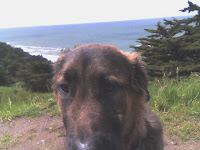 Sno White deserves its own entry. There are a few prerequisites to understanding its significance and I'll attempt to outline them here.
Sno White deserves its own entry. There are a few prerequisites to understanding its significance and I'll attempt to outline them here.Fast food barely existed in the 60s. I think there was one McDonald's in our town, which I maybe got taken to twice as a child. I think burgers were had maybe 6-8 times a year. I know that's standard for people with hippie parents, but hippie parents hadn't even had a chance to conceive yet. They were still teenagers themselves. So I'm talking about just normal life in mainstream America. It wasn't that we were thinking about and craving fast food during the weeks and months we weren't getting it. It's that fast food was a blip on the radar; something that didn't occur to you very frequently.
I guess today its really the food of the poor, but back then poor people ate stuff (like corned beef and mashed potatoes, my favorite childhood meal) at home. The first time I tasted Spaghetti-Os, which was invented when I was about nine, I nearly spit it out. I had begged for weeks for my mom to buy it (she was definitely not a canned food/brand name kind of consumer, and Spaghetti-Os -- currently priced at 43 cents a can -- was considered expensive) and I was really embarrassed that I couldn't swallow more than a few bites. She was sympathetic. I mean, basically it's watery tomato-flavored sugar over O-shaped dough. But that just gives you an idea of how foreign "convenience" foods were.
All that changed in the 70s, when a frightening dystopic "restaurant row" went up in our town. Fast food was a fixture of my teen years. But not at all during childhood.
Okay, so keep that in mind. Fast food was rare. Next point: my aunt's steel blue station wagon. It was enormous and it was our caravan. My cousins (Betsy and Leslie, whose names never sounded hilarious to me until just now) and I hung out in the backseat on whatever chauffeured adventure. So picture yourself there on a hot summer day, coming home from the park or something. (You have to be me in this scenario, but it's only imaginary and it won't last, I promise.)
Your aunt says, "I think we'll drop in at Snow White's." Betsy and Leslie cheer. You reflect. Obviously, there is no "real" Snow White. But it's possible that there is some Snow White attraction that exists that you've never heard of but that your cousins evidently adore. Or that your aunt maybe knows somebody who is so much like Snow White that a whole nickname situation was engendered. You check. "Snow White and the Seven Dwarfs?" Your aunt, thinking you are joking, plays along. Your cousins chime in on the joke, which continues in various forms for the next several minutes. The entire time your brain is continually recalculating the probability stats that you will soon be in the presence of the actual Snow White, and that probability is now approaching 95%.
Then you pull into the Sno White drive in parking lot. And -- drum roll please -- this turn of events is so dramatic that you are NOT disappointed. The opposite. The idea that you could casually, at the last moment, decide to "drop in" to a burger joint is about as extraordinary as you calling up a friend right now to go drink a milkshake in Paris.
The opulence. The decadence. It just wasn't done.
Sno White's menu was: Burger. Cheeseburger. Fries. Coke. Seven Up. Ice cream cone in the three standard flavors. It was dizzying. What to choose?
Their burgers were flat and crispy and that's what made them different. Buns were toasted and smeared with mayonnaise and secret sauce (which, as the movies have revealed to us, is forever thousand island dressing). I can't stand mayonnaise, but Sno White was a magical enchanted place where mayonnaise reigned supreme. The fries were thick krinkle fries that came pre-salted in a waxed paper envelope. Pre-salted, people. Can I get some appreciation here?
You lived one block away from Sno White until you were 10. At some point after you moved, it was converted into a taqueria. And although you grew up and became a vegetarian, a couple of times a year you fall asleep thinking about that particular taste that exists nowhere else in the world. You know the dull red of the laminated tabletops, you know the sound and feel of the cooler that ran in place of air conditioning, you know your cousin's standard order (burger, hold the mayo -- and she was the first person I ever heard say that in real life, 7-Up). You know everything about that place.
Except the fact that there are still eleven of them! And one of them is conveniently located right in the middle of your route to Yosemite!
I had to call my friend Richard, who keeps statues of the A&W family next to his swimming pool, and ask him if he knew that Sno White still existed. Even he didn't realize it! And have I mentioned that the entire A&W family stands next to his pool?
In closing, I'd like to take a moment to share this awe-inspiring photo with you. I defy even Yosemite to come up with something more beautiful.


